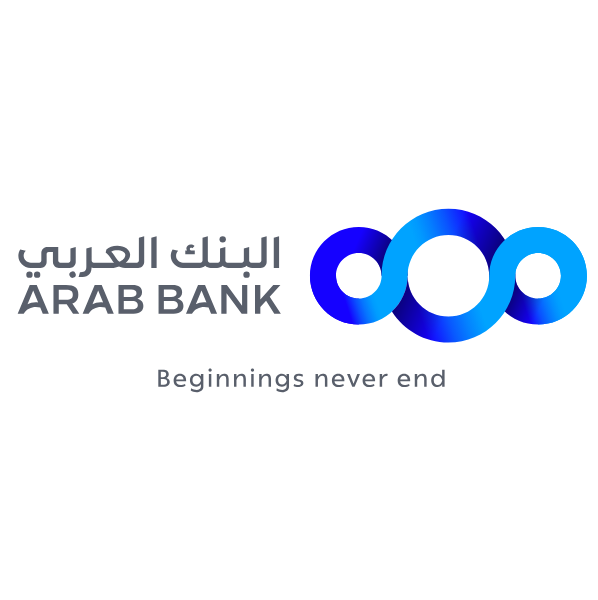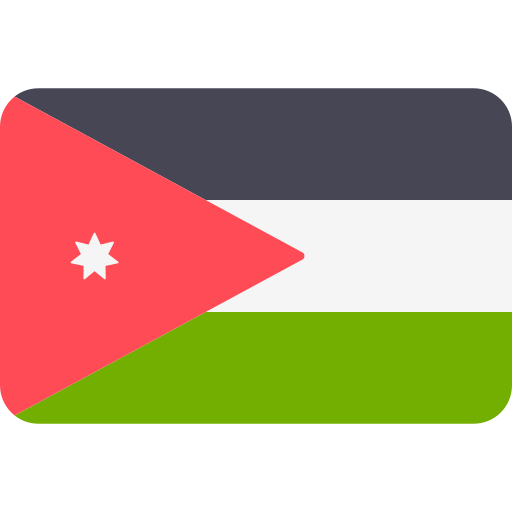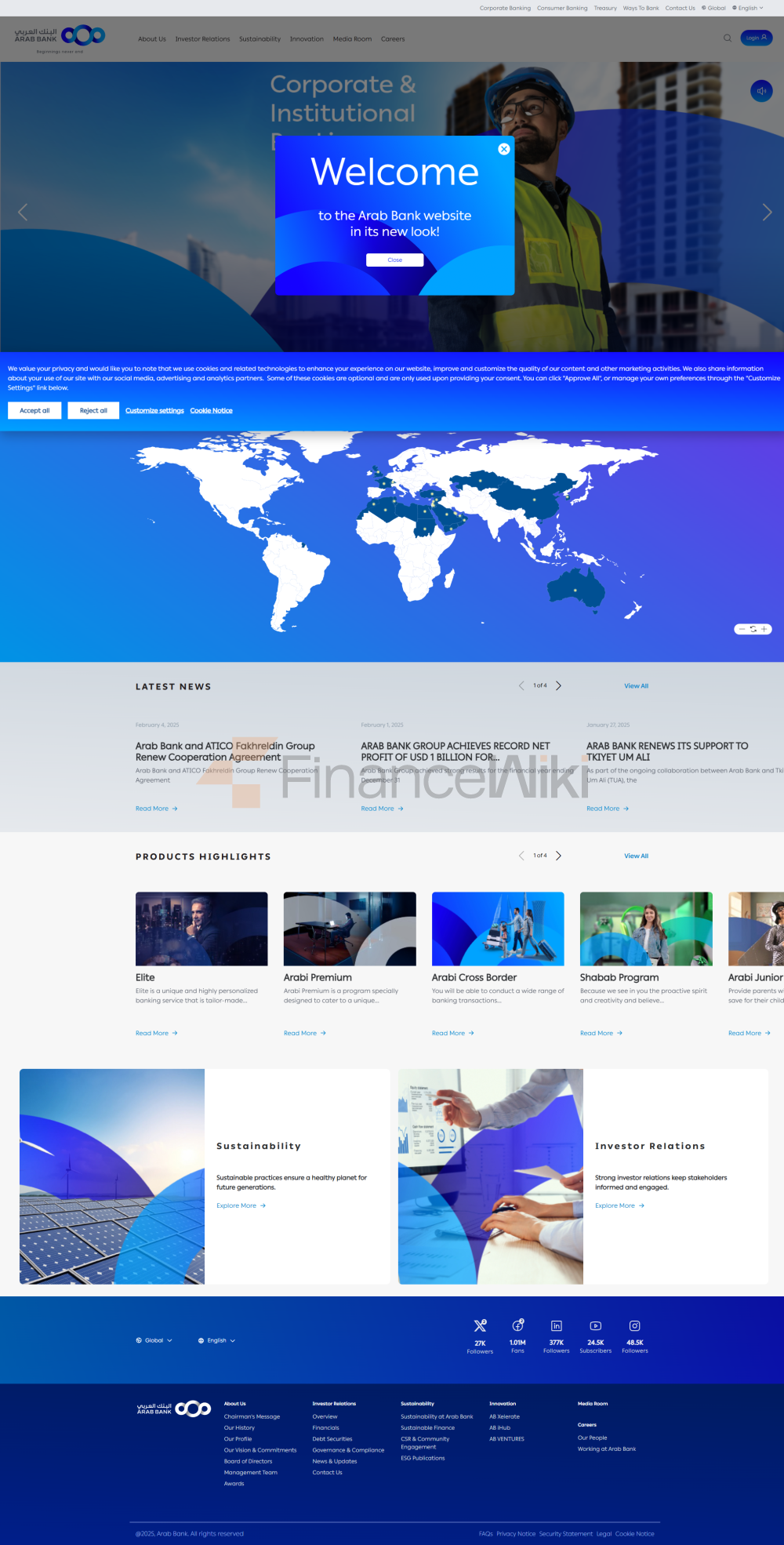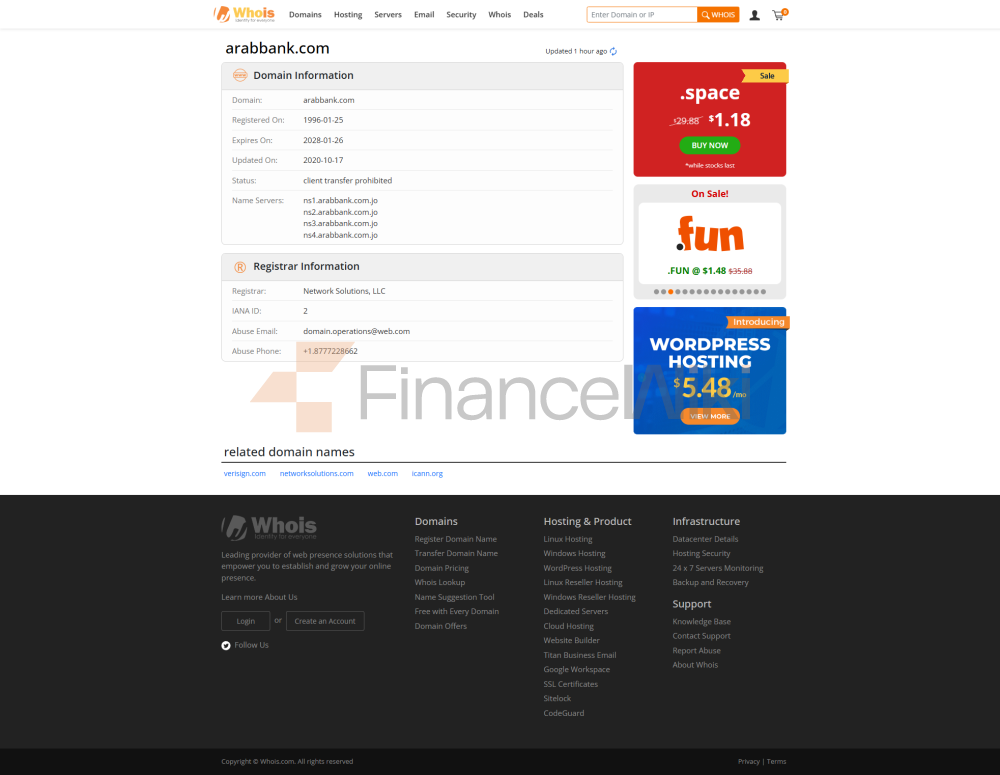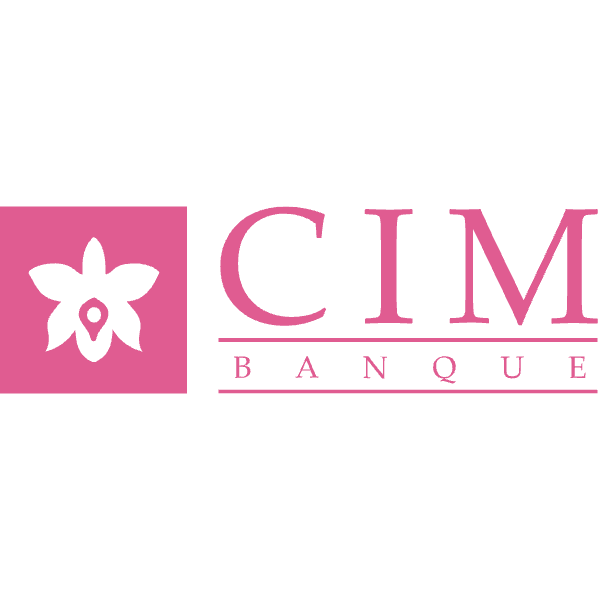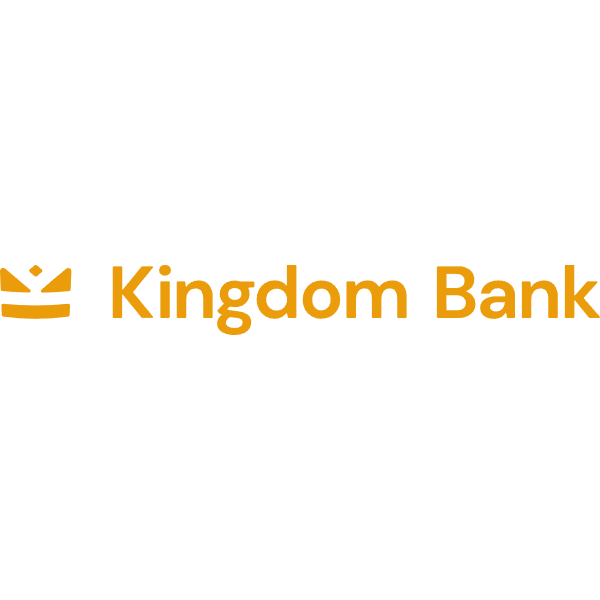Founded in 1930, Arab Bank is a long-established and globally influential financial institution that is one of the largest banks in the Middle East. Headquartered in Amman, Jordan, with a service network spanning five continents, it occupies a prominent position in the international banking community thanks to its solid financial position and innovative digital services. The following is a comprehensive analysis of Arab banks, covering all its key aspects, providing an exhaustive reference for customers and stakeholders.
Basic information
about the bank Arab Bank is a commercial bank, non-state-owned or joint venture, listed on the Jordan Stock Exchange. Founded on May 14, 1930, the full name is Arab Bank Plc, originally established in Jerusalem, Palestine, as the first private financial institution in the Arab world. In 1948, due to changes in the political situation, the bank moved its headquarters to Amman, Jordan, and registered it as a joint-stock company. Headquartered in Amman, its shareholders include both individual and institutional investors, such as the Saudi Arabian Ministry of Finance and other major investors. In 2024, total assets reached $7.12 billion, reflecting its strong market position and financial strength.
Scope of ServicesArab
Bank's service network covers five continents, more than 30 countries, with more than 600 branches, mainly in the Middle East and North Africa region, especially Jordan, Palestine, Egypt, the United Arab Emirates and Qatar. ATMs are widely located in the vicinity of these branches to meet the needs of traditional bank customers. In addition, Arab Bank offers online banking services through the digital platform "Arabi Mobile", which allows customers to conduct transactions such as bill payments, transfers, and account management without having to physically visit a branch. This combination of tradition and modernity makes it a unique hybrid in the global banking industry.
Regulation &
ComplianceArab banks are regulated by the Central Bank of Jordan (CBJ), which ensures compliance with national banking regulations. As a member of the Deposit Money Bank, it participates in the Jordanian Deposit Insurance Corporation (JODIC), which provides deposit insurance of up to 50,000 Jordanian dinars per depositor. This insurance covers the protection of depositors in the unlikely event of a bank failure. No recent reports of significant regulatory or compliance issues indicate a good performance in compliance. In addition, Arab banks comply with international standards such as FATCA (Foreign Account Tax Compliance Act) and the Wolfsberg Principles to prevent money laundering and terrorist financing.
Financial Health
: The financial position of Arab banks is very strong. The 2024 data shows that its capital adequacy ratio (CAR) is 17.2%, well above regulatory requirements and Basel III minimum standards. The non-performing loan coverage ratio is over 100%, indicating that its asset quality is good. Although the Liquidity Coverage Ratio (LCR) is not directly disclosed, the loan-to-deposit ratio is 73%, reflecting good liquidity. Total assets reached US$7.12 billion, total loans amounted to US$3.83 billion and total deposits amounted to US$5.22 billion, up 6% and 5%, respectively, from 2023.
Deposits &
LoansDepositsArabic
banks offer a variety of deposit products, including savings accounts and fixed deposits. Term deposit terms range from one month to five years, and interest rates vary depending on the market and currency. Featured products such as "e-Fixed Deposit" and "e-Flexi Deposit" offer competitive interest rates through online bookings, and customers can choose to pay interest monthly, quarterly, semi-annually or annually. All deposits are JODIC insured up to a maximum of 50,000 Jordanian dinars per depositor, ensuring the safety of depositors.
Loans:
Arab banks' loan products include personal loans, home loans, and car loans. Personal loans are designed to be flexible, easy to apply, and even allow first-degree relatives to apply together to meet the minimum income requirement. Mortgages offer competitive terms to help customers achieve their dream of buying a home. Car loans, on the other hand, are known for their simplified process. Repayment options are flexible, including monthly or quarterly installments, and are especially suitable for long-term loans such as home loans and car loans.
Thedigital service experience
"Arabi Mobile" app, which is at the heart of Arab Bank's digital strategy, received a user rating of 4.2 stars (Google Play and App Store). The app supports online account opening, instant transfers, bill payments, card management, and secure logins via facial recognition, fingerprints, or patterns. Core features include real-time transfers, bill management, card management, and more. Arab banks also support open banking APIs through the Omnify platform to foster financial innovation. In addition, banks leverage AI-powered customer support to enhance the user experience.
Customer Service Quality
Arab Bank offers 24/7 customer support services, including phone (e.g. 4600900 in Jordan), email, and live chat. In addition, banks are also active on social media platforms such as X:@arabbank to respond quickly to customer inquiries. Complaint handling is efficient, with an average resolution time of 2 working days. Customer satisfaction is high, and the bank also offers loyalty programs like Arabi Points. In addition, banks may offer multilingual support, particularly Arabic and English, to meet the needs of cross-border customers.
Security measures:
The safety of funds is the primary concern of Arab banks. All deposits are insured by JODIC up to a maximum of 50,000 Jordanian dinars. Banks use technologies such as real-time transaction monitoring and two-factor authentication to prevent fraud. Although there is no mention of specific data security certifications, such as ISO 27001, Arab Bank follows standard banking security practices and has not reported any major data breaches, further reinforcing its commitment to customer data protection.
Featured Services & Differentiated
Segments:
Bank of Arab offers programs such as "Arabi Junior" for youth and savings accounts with competitive interest rates for children. In addition, the bank supports green finance projects, including green bonds and initiatives aligned with the United Nations Sustainable Development Goals, such as sustainable infrastructure projects.
High Net Worth ServicesThrough
Arab Bank (Switzerland) S.A., the bank provides private banking services, including customized solutions such as wealth management, financial planning and real estate loans, with a low barrier to entry and suitable for high-net-worth clients.
Market Position & Accolades
Arab Bank is one of the top 50 financial institutions in the global banking industry and one of the largest financial institutions in the Middle East. In 2024, Global Finance magazine awarded it the titles of "Jordan's Best Bank for SMEs" and "Jordan's Best Trade Finance Provider". In addition, The Banker magazine presented awards for its innovation in digital banking services. The Arab Banking Union also awarded it the Arab Banking Excellence Award, cementing its leadership position in the industry.
Conclusion:
Bank of Arabia is a banking institution with a long history and strong strength, and its modern digital services and global network make it stand out in today's banking industry. With a solid financial position, exceptional customer service and a commitment to innovation, Arab Bank continues to play a leading role in the Middle East and global banking sector.
